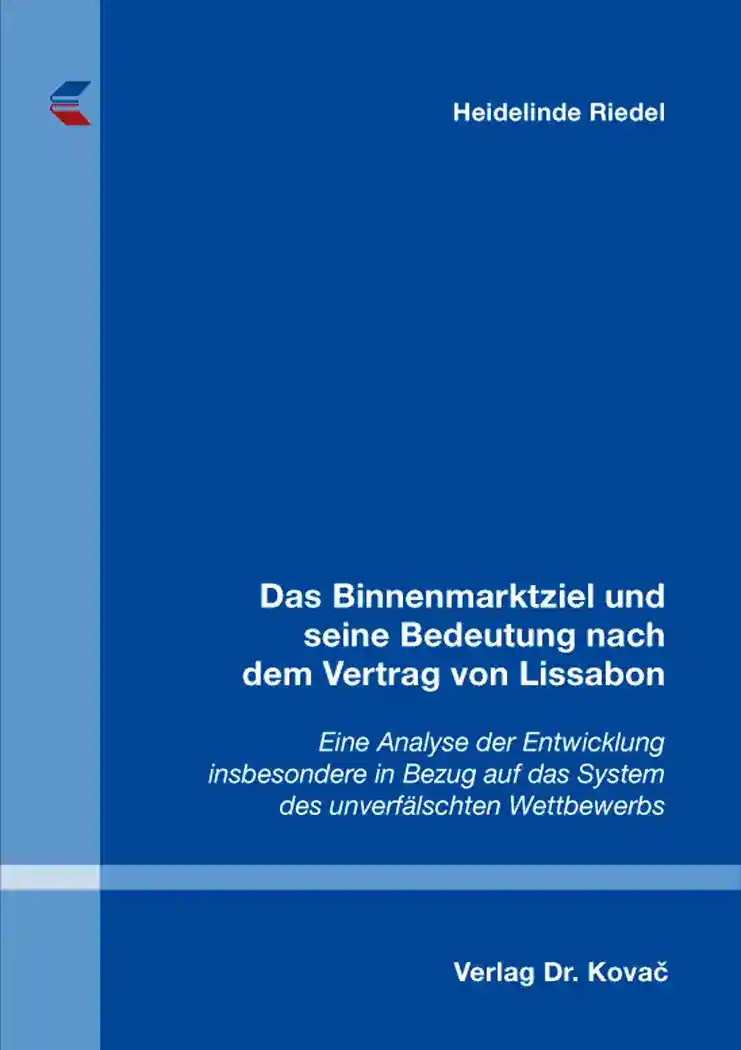Heidelinde RiedelDas Binnenmarktziel und seine Bedeutung nach dem Vertrag von Lissabon
Eine Analyse der Entwicklung insbesondere in Bezug auf das System des unverfälschten Wettbewerbs
Studien zum Völker- und Europarecht, volume 127
Hamburg 2015, 420 pages
ISBN 978-3-8300-8318-4 (print)
ISBN 978-3-339-08318-0 (eBook)
About this book deutschenglish
The EU changes from an economic community to a community of values. If this thesis applies for the European Union will be analysed in the present paper. For this purpose the objectives will be examined. The Treaty of Lisbon caused – at least in the objectives of the EU – a reinforced social direction. This redirection is illustrated by several new social aims on the one hand, e.g. a highly competitive social market economy. On the other hand it is evident due to a missing link between the objective of a system of an undistorted competition and the internal market and the associated removal of competition into a protocol annexed to the Treaties. First, the effects of the changes concerning the objective of an internal market will be analysed. It will be focused on the objective of a highly competitive social market economy. This goal has been mentioned for the first time in a treaty of the EU, although it has not been concretised in the Treaty of Lisbon. Therefore the significance as well as the realization of this goal is questionable. Also, the realization of the several new social aims is in question since these aims are not linked to sufficient competences of the EU. The approach for the removal of competition into a protocol has been initiated by Sarkozy who was the French President at the time of the Treaty’s negotiations. He intended a strengthening of the European industry by forcing mergers and supporting European Champions. According to Art. 51 TEU-L protocols form an integral part of the Treaties and have the rank of primary law. Nevertheless Sarkozy’s motivation emphasises the assumption that the removal affects the competition in the EU. The effects of the social aims on the internal market in the EU are to be opposed to the effects of the removal of competition. This comparison will illustrate a parallelism arising from a political agreement at the time of the ratification of the Treaty of Lisbon.Keywords
BinnenmarktzielEuropäische IndustriepolitikEuropäisches SozialmodellEuroparechtSoziale MarktwirtschaftUnverfälschter WettbewerbWertegemeinschaftWettbewerbskonzeptWettbewerbsregelnWirtschaftsgemeinschaftZielbestimmungYour book at Dr. Kovač Publishing House
We publish your doctoral thesis >>
